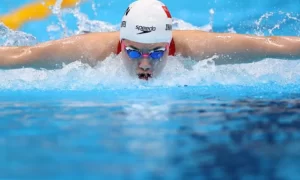World Athletics President Sebastian Coe has announced that transgender women will no longer be allowed to compete in female track and field events, regardless of their levels of testosterone.
According to Sebastian Coe, this decision has been made based on the principle of fairness over inclusion.
Coe stated that no transgender athlete who has gone through male puberty will be permitted to compete in female world ranking competitions from March 31.
He added that World Athletics had consulted with stakeholders, including 40 national federations, the International Olympic Committee, and trans groups, about the issue of transgender athletes.
“The majority of those consulted stated that transgender athletes should not be competing in the female category,” he said.
Coe added that many stakeholders believe there is insufficient evidence to show that trans women do not retain an advantage over biological women, and they want more evidence that any physical advantages have been ameliorated before considering an option for inclusion into the female category. Coe emphasized that the decision made by World Athletics was in the best interests of their sport.
However, Coe also stated that they are not saying “no” forever and that a working group headed by a transgender person would be created to further monitor scientific developments.
As more evidence becomes available, World Athletics will review its position, but the integrity of the female category in athletics is paramount.
World Athletics’ ruling follows that of FINA, swimming’s world governing body, which has stopped transgender swimmers who had gone through male puberty from competing in women’s elite races.
World Rugby, in 2020, was the first international sports federation to rule that transgender male-to-females could not compete at the elite and international level of the women’s game.
In addition, World Athletics also amended regulations covering athletes classified as DSD, or having “differences of sexual development.”
The most high-profile DSD athlete is double Olympic 800m champion Caster Semenya of South Africa.
Under the new regulations, to compete in the female category, DSD athletes will have to reduce their amount of blood testosterone to below 2.5 nanomoles per litre, down from the current level of five, and remain below this threshold for two years, rather than just one, as is the case now.
World Athletics also removed the principle of restricted events for DSD athletes, meaning regulations now cover all events rather than just those from 400m to one mile.





























